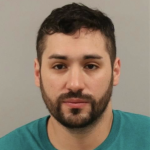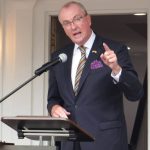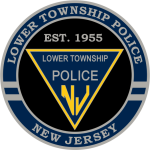COURT HOUSE – “CK N2CMC. How copy KC5OLN? QSL.”
It’s not a foreign language, but text Bill “N2CSA” Cole saw on his digital ham radio’s screen. He joined nearly 40,000 other ham radio operators across the U.S. June 24 for a Field Day event demonstrating the science, skills, and service ham radio operators might need in abnormal situations under less than optimal conditions.
Cole joined a dozen or so other Cape May County Amateur Radio Club members as they participated in the most popular ham radio event since it began in 1933 by the Amateur Radio Relay League (ARRL).
For 24 hours, the operators reached out to contact colleagues, share logistical information and track how many they spoke with in a language that can be traced to the start of Morse Code.
Cole, of Lower Township, and Art Schaper, of Cape May, were set up in the 4-H Fairgrounds Lockwood Building, testing their digital equipment as part of the event.
Using their radios, generators provided power, and antennae set up on the grounds, they could text, send pictures or video files. Those would be important items that could help agencies determine the breadth of disasters and what type of emergency response is needed.
“Video files take pretty long to send, so we don’t really send them,” Cole said, comparing the speed of transmission to “slow Internet.”
Using macros, or pre-made messages, they sought anyone “out there” over the airwaves from their digital ham radios.
“CK means we are willing to talk to anyone out there,” Cole said, explaining some of the ham lingoes.
“N2CMC is our club’s call letters. So when we send out CK N2CMC, we are saying that our club is willing to talk to anyone on the airwaves. How copy KC5OLN? That is asking how their station is being received, and QSL can mean ‘Did you understand?’ or a response in the affirmative or negative.”
While confusing at first, Cole said it’s a matter of “practice, and trial and error” when first learning the language of the ham radio operator.
The Federal Communications Commission (FCC) grants licenses to operate on radio frequencies known as amateur bands after certain tests are passed about radio theory, regulations, and operating practices.
With their jargon, the hams planned to demonstrate during the event how the slogan “When All Else Fails, Ham Radio Works,” by sending messages in many forms without the use of phone systems, the Internet or any other infrastructure that can be compromised in a crisis.
By the end of the 24-hour period, the county club had heard from over 365 operators from the U.S., Canada, Puerto Rico, Hawaii and the Virgin Islands.
According to Robert “Bob” Myers, the club’s public information officer, the 82-member all-volunteer organization has been around since 1975, when the Stone Harbor Amateur Radio Klub (SHARK) formed to supplement emergency communications in the nearby shore communities.
By 1980, the club changed its name to Cape May County Amateur Radio Club to reflect its membership base.
“Our members are from the 20s to their 90s,” he said, “although our older members are called honorary members. Even when some of our members have moved out of the area, they still use their hams to stay in touch.”
One couple, Elaine and Howard Woolley, return to Cape May each summer from their home in Weslaco, Texas, to help with the event. Both hams, they not only use their radios but help in the kitchen keeping the event participants fed.
Another member, Gregory “N2BSA” Nitkowski, travels from Little Egg Harbor Township to join in the meetings and take part in events like the Field Day.
He said he’s been doing “only” Morse Code for more than 40 years, and only “talks” with people outside the Continental U.S. He listened closely as beeps came over the radio, with his finger ready to respond on the Morse key.
John Calhoun, of Heislerville, partnered with Joel Rutenberg, of Villas, as they adjusted the radio frequency to talk with other hams, logging in their frequency, call sign, location and other information using voice communication.
The Field Day is a contest sponsored by the ARRL to see which club talks with the largest number of operators around the country.
As of June 29, it was not known where the Cape May County Club placed.
Amateur radio is growing in the nation according to Myers, with more than 700,000 licensees in the U.S. and more than 2.5 million around the world.
Through the ARRL’s emergency services program, ham volunteers provide both emergency communications for thousands of state and local emergency response agencies, as well as non-emergency community services, all for free.
“We just helped out with the half-marathon in Wildwood,” Myers said, about the group providing services to the community. “Once a month we check out all our stations with agencies such as the hospitals, nursing homes, Office of Emergency Management and government offices.
“We try to test ourselves in all sorts of weather, during the day time and night time, too,” the Goshen resident said.
“Despite the internet, cell phones, email, and modern communications, every whole year regions find themselves in the dark. Tornadoes, storms, fires, ice and even the occasional cutting of fiber optic cables leave people without the means to communicate. In these cases, the one consistent that has never failed has been amateur radio. We need nothing between us but air.”
The Cape May County club meets every Wednesday at 10:30 a.m. for breakfast at the Villas Diner and Pizzeria, 2100 Bayshore Road.
A business meeting is held the third Wednesday of the month at the Library in Court House in the Emergency Operation Center meeting room. All are welcome at either gathering.
To contact Karen Knight, email kknight@cmcherald.com.








